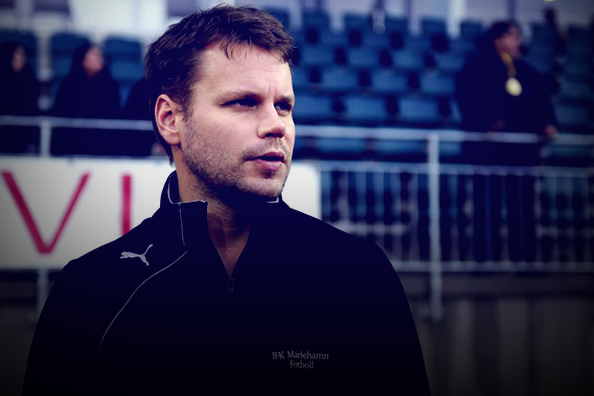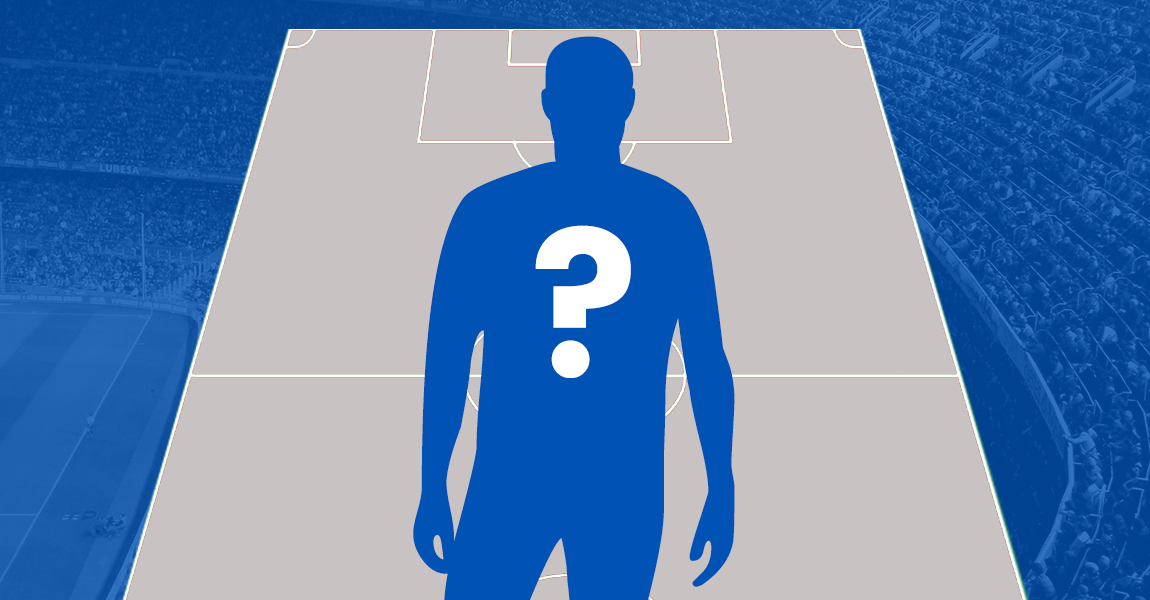Jack Flanagan writes about IFK Mariehamn, the surprise Finnish champions.
2016, otherwise known as the “year of the underdog”, has to go down as one of the craziest years in recent footballing memory. Leicester City won the Premier League in an era where the top clubs have been pushing further and further away from the rest of the pack. Portugal won the Euros for the first time in their history by beating France in the final, in Paris. Ajax surrendered the Eredivisie title to bitter rivals PSV on the final day of the season, by drawing away from home when a win would’ve ensured the title’s return to Amsterdam. It’s been breathless.

Just as we were catching our breaths, in the increasingly darker, slower and colder winter months following summer, we now have to deal with a new unlikely champion – IFK Mariehamn, from Finland. Now I say IFK Mariehamn from Finland, but it’s actually a bit more complicated than that.
IFK Mariehamn are a team from Mariehamn (surprisingly), the capital of the Åland Islands, an archipelago in the Baltic Sea stuck between Finland and Sweden. The Åland Islands are a Finnish territory, but they have their own parliament. To complicate matters further, they’re Swedish-speaking. Around 88% of Mariehamn’s inhabitants speak Swedish as their native language. Their flag also looks remarkably similar to Sweden’s, but they are Finnish by decree. Therefore they compete in the Veikkausliiga, Finland’s top professional division. And it is that very division which they have just won.
The reason we have a league champion in November is largely thanks to Finland’s uncompromising climate. Like many cold-climate European nations, league matches in Finland run from April to October, over 33 rounds. This is wise. There are teams in the Veikkausliiga as far north as Lapland, where temperatures in the winter months drop to around -10°C, if you’re lucky. Most professional footballers take up football to play on a pitch, not an ice skating rink.
Anyhow, HJK, Finland’s most successful club, have recently dominated the Veikkausliiga. From 2009-2015, they won the league every year but one, and have spent 78 years in the Finnish top flight. It’s in their blood. That is not something IFK Mariehamn can claim. Despite being 97 years old, they have been semi-pro for most of their history, languishing mostly in Finland’s 3rd tier. In fact, they only turned pro in 2009, making them roughly as old as RB Leipzig as a professional football team. However, their landmark moment came way back in 2004, when a playoff victory against FC Jazz saw them promoted to the Veikkausliiga for the first time in their history.
IFK Mariehamn’s rise was masterminded by a man named Pekka Lyyski, who served as the club’s manager for 12 years from 2003, when they were still a 3rd tier club, to 2015, when he retired. 2015 was the most remarkable year to date for the island club – they beat FC Inter 2-1 in the Finnish Cup final to crown their first trophy in their long history. Few would’ve predicted they could top that.
But then came the 2016 season. With their renowned coach gone, most were predicting a tough season. Many of their players from the cup-winning squad had left. So how on earth did IFK Mariehamn achieve the unthinkable? They followed the age-old, tested and tried formula of defensive solidity and team spirit. “Attack wins games, defence wins titles”, Sir Alex Ferguson once said. In the case of IFK Mariehamn, he was right. Scoring just 40 goals in 33 matches, considerably less than their title rivals, they also only conceded 25, less than a goal a game. No one conceded fewer in the league.
Even then though, the title was by no means a foregone conclusion. It came down to the final round of matches. HJK were lurking dangerously in 2nd place on 57 points, whilst IFK Mariehamn were top with 58 points. A win would secure the title regardless of HJK’s result. The islanders played at home to Ilves, just 6 points behind them in the table. Not ideal.
40% of Mariehamn’s population, or 4,355 people to be exact, turned out to witness the potentially historic occasion. Despite the inevitable nerves, IFK Mariehamn flew out of the blocks. Bobbie Friberg da Cruz, the islanders’ veteran right back, scored a towering header from an out-swinging corner to put the hosts 1-0 up. An incredible goal for a man with an incredible name. Optimism in the air, it took Ilves just 22 minutes to respond with a screamer from Tuure Siira from just outside the box. From that moment on, the visitors continued to press. The game was worryingly open for a side that had prided themselves on defensive stability for an entire year. But then, in the midst of the madness, came Mariehamn’s moment. Dever Orgill, the club’s top scorer, put the ball across the 6-yard box for Diego Assis who tapped in the winner. 2-1. 15 minutes later, history had been made. IFK Mariehamn were champions, for the first time ever.
What makes the club’s success even more remarkable is the lack of a talent pool they have to access. The Åland Islands have a population of less than 30,000 people of all ages, levels of fitness and footballing ability. The club therefore have to import from abroad, but with a small budget and an inevitably restricted scouting network, successful recruitment is easier said than done. That doesn’t include the challenge of attracting professionals to come and ply their trade on a relatively remote group of islands.
It’s also easy to forget the effort required for an away game. Mariehamn is a solid 10-hour journey by ferry from Helsinki, and what if their away game is not in Helsinki? Take RoPS, a Veikkausliiga club from Rovaniemi, for example. In the barren north of the country, Rovaniemi is 811km away from Helsinki. That’s roughly the distance from London to Frankfurt. That’s about a 2-day trip, excluding delays. Round trips, as a result, often become expeditions.
Perhaps it is the long nights on the ferry that helped to foster such an incredible team spirit. Or it could well be the very fact that they are the only football team representing the Åland Islands professionally. With its small but proud population, the club regularly see over 1,500 turnout for a league match. Considerably less than HJK, but for such a small community, it’s quite an impressive number. With the club’s recent achievements, the community will only grow stronger, and the numbers at the Wiklöf Holding Arena will only increase further.
IFK Mariehamn have it all to look forward to. Next season they will be playing as defending champions for the first time ever. Even better than that, they will have an opportunity to compete in the Champions League qualification rounds. It might be a bit of a push to get to the group stage, but it will nevertheless be an unforgettable experience for a club that has had very little to shout about in its long, largely uneventful history.
- IFK Mariehamn: From Obscurity to Finnish Champions - December 3, 2016
- Hipster Guide 2016-17: Valencia’s tactics, key players and emerging talents - August 23, 2016
- Hipster Guide 2016-17: Sassuolo’s tactics, key players and emerging talents - August 19, 2016





















































